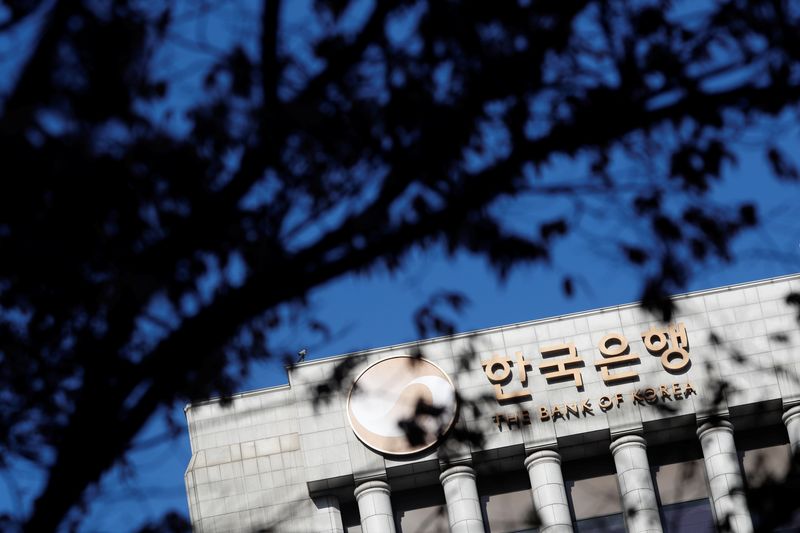By Anant Chandak
BENGALURU (Reuters) - The Bank of Korea will take a pass in January but cut interest rates by a quarter-point in February following an unexpected reduction on Thursday to support a weakening economy, according to economists in a Reuters snap poll.
To boost activity in Asia's fourth-largest economy, which narrowly avoided a recession last quarter, the BOK cut rates for a second meeting in a row on Nov. 28 - the first back-to-back reductions since early 2009. Inflation has largely stayed under control.
However, BOK Governor Rhee Chang-yong said the future remains uncertain given President-elect Donald Trump's plans to hike tariffs. The U.S. is one of South Korea's largest export destinations.
A strong majority of economists, 16 of 22 in a snap poll conducted Nov. 28-29, forecast the BOK would cut its base rate by 25 basis points to 2.75% in February.
The other six predicted the next quarter-point cut would come in January.
"We now expect one more cut as early as February 2025 and a faster recalibration of policy stance to neutral ... while acknowledging uncertainties related to U.S. trade policy – the timing of the tariffs, their coverage, and their magnitude – could alter the path," Bum Ki Son, economist at Barclays (LON: BARC ), said.
He was one of the few economists to correctly predict the surprise November cut.
"With the BOK's concern on growth also becoming structural, given intensified competition and China's aggressive investment, we believe the speed of policy normalisation to neutral could be faster than we expected," Bum Ki Son added.
Median forecasts indicated a cumulative 75 basis-point cut next year, bringing the policy rate to 2.25% by end-September, compared with 2.50% expected in a poll taken before Thursday's central bank meeting.
But there was no clear consensus on the rate at end-September, with 11 of 22 economists forecasting 2.25%, 10 saying 2.50% and one 2.00%.
"The tone of the statement and Governor Rhee's press conference makes clear that further easing is on the way and that supporting economic growth was now the central bank's main priority," Gareth Leather, senior Asia economist at Capital Economics, said.
"We expect growth to struggle over the coming year. Although exports should continue to perform strongly, this is likely to be offset by further weakness in the labour market and the continued struggles of the property sector."

The BOK downgraded its forecast for economic growth in 2025 to 1.9%, weaker than the previous forecast of 2.1%.
(Other stories from the November Reuters global economic poll)

